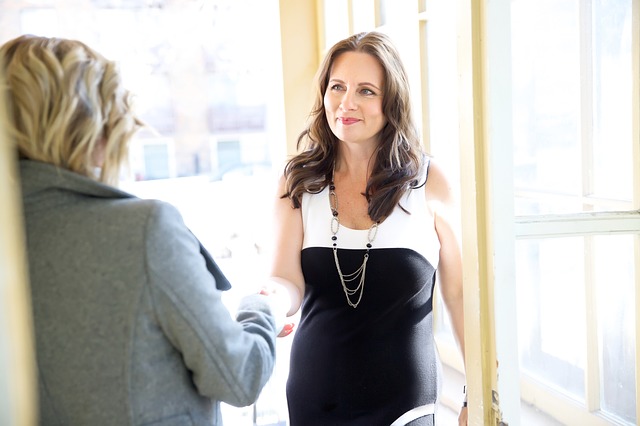When searching for a new job role or wanting to take on a new challenge in your career, the one thing that you will inevitably encounter is a job interview.
If you are making a career change, or have been in your current job for some time, this could be something you may not have had to contend with in a while. Whilst there is a debate over which type of interview is the most effective indicator of an individual’s skills and suitability, being as prepared as you can for different interview scenarios is always in your best interest as this will go a long way to calm your nerves and give yourself a little more confidence.
What is the interview process?
Understanding the interview process for the organisation you have applied for is always a good idea when preparing as there may be slight differences to any interviews you have had previously. If you are unsure about any details of the upcoming interview, including who you will be meeting with or anything you need to bring, get in contact and ask in advance.Some interviews might be divided up into separate parts including presentations and group tasks, whereas others could be carried out in a more traditional style. This will help settle with your nerves, allow you to show your best ability on the day and ensure you are prepared for any short presentations or tasks they want you to deliver on the day. It will also demonstrate proactivity – which is a skills that many organisations look for.
A prospective employer should be more than happy to answer any questions you may have. This could be pre or post the interview. Sometimes, we are so worried about what others may think of us or not wanting to be wasting people’s valuable time that we avoid asking what we think of as ‘stupid’ questions but making sure you have all the information you need will ensure you are fully prepared and are able to make an informed decision if you are offered the position. In fact, asking these questions makes it much more likely that you won’t be wasting the employer’s time at any point of the selection process.
The importance of research
It is really important to have a clear understanding of an organisation’s background, specialisms and values before heading into an interview. It is common for the interviewer to ask you about this information to make sure your values align with the business, so be prepared for these questions. You could gather this information from their website, social media or any features in publications they may have secured. Always make sure you take the time to understand more than just the general information of the business as it will give you an advantage over others. For example, you could discuss a specific project that inspired your application on their site or maybe a blog post they have written as a talking point. Remember, the interview is your chance to shine and show you would be an asset to the business so demonstrate exactly why you align well with their goals and values.
Practise – Questions and Examples
There are certain questions that feature in interviews across industries that you should always prepare an answer to. Many common interview questions cover topics such as why you want to work for the business and what you consider as your strengths and weaknesses. So, when preparing for the interview, make sure you are aware of your own highlights so that you can clearly demonstrate the value you have added in your previous roles. There will also be some industry specific questions; these may be straightforward if you currently work in the industry but could be more difficult if you are having a career reboot or side step. Either way, it is always a good idea to do research on best practices and current news in the industry as it will give you a broader understanding of the role and where it and the company fit in wider themes.
When answering questions, using examples to back-up your points helps you to sound more professional and knowledgeable about both your industry and your achievements. This is not to say you have to go through your entire CV, but it is more beneficial to be selective any cite achievements and experience that directly relate to the role in question. Make sure you are familiar with all the information you have on your portfolio or profile as the interviewer may choose to ask you about something specifically and you will need to give a detailed answer.
Practise with a familiar face
Working through potential interview questions with someone you know is a great way to get comfortable with things you may be asked. Everyone learns in different ways but often the best way to practise your ideas is to speak them out loud. If there is no-one available, you could go through your answers in front of the mirror. Your mock interviewer can then honestly highlight any weaknesses you may have when answering questions which will help you to use your preparation time in the most effective way possible.
Think about all areas
Body language is something to be aware of, always make sure you remain professional as you want to project confidence. This can be difficult if you are nervous, but focus on your ability to be a good listener, remain open and look people in the eye. The outfit you choose will be the first impression you give to the employer. The industry you are applying for can sometimes determine your choice of outfit, but nonetheless pick something professional that you feel confident and comfortable in. Planning the outfit in advance will minimise stress on the day. Why not wear an item that reflects the company’s colours – every little bit helps!
Be sure to follow up
Once you have completed the interview, make the most of your point of contact by following up with them to thank them for their time. This will express your interest in the role and show the business you are keen and conscientious – a great note to leave on!
 About the author
About the author
Sarah Jones is a published author, leading speaker, and accredited leadership, talent development and team productivity coach. Born with an entrepreneurial spirit and an insatiable drive to help others find their happiness, accelerate leadership and executive performance, Sarah founded her coaching business, Sarah-J Coaching, after a successful career in PR to help people find purpose, meaning and direction in their lives and careers. Sarah is an NLP practitioner and holds diplomas from the Coaching Academy, accredited with the International Coach Federation, and Institute of Leadership Management — the Personal Performance Coaching Diploma, and a Corporate and Executive Diploma (both Merit). More information can be found here: https://www.sarah-j.com/









